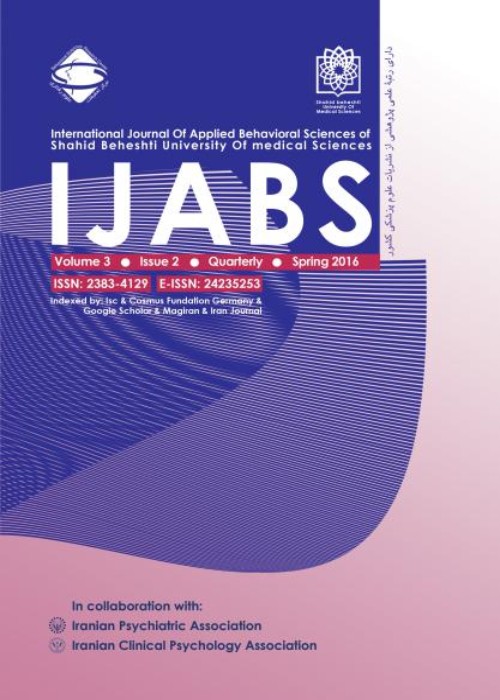The Effectiveness of Emotion Efficacy Therapy on Entrapment, Guiltin Caregivers of the Patients with Dementia
Considering the growth of the population and the consequent high growth rate of elderely individuals, there is a great need to attend and recognize the problems related to the physical and psychological health of patients with dementia and their caregivers. Therefore, the present study aimed to find the effect of emotion efficacy therapy on entrapment and guilt in caregivers of patients with dementia.
It was a quasi-experimental study with a pre-test, post-test, follow-up, and control group. The statistical population of the study included the caregivers of patients with dementia who were referred to neurology clinics in Isfahan in 2022, among whom 30 were selected by purposive sampling, taking into account the inclusion and exclusion criteria and randomly assigned to experimental and control groups each comprising 15 caregivers. The experimental group underwent eight sessions of 90-minute emotion efficacy therapy, and the control group was placed on the waiting list without intervention. The data were collected by Entrapment Scale and Caregiver Guilt Questionnaire and were analyzed by multivariate analysis of covariance.
The results showed that emotion efficacy therapy significantly affected entrapment and guilt in caregivers of patients with dementia (p<0.05). Furthermore, the interaction of the effect of time and group membership was also significant for entrapment (internal, external), guilt (guilt about self-care, guilt about doing wrong by the care recipient, and guilt about not rising to the occasion as caregivers) except for the factor of guilt about having negative feelings towards other people and guilt about neglecting other relatives (p>0.05). It showed that the changes in the pre-test, post-test, and follow-up stages were significant in each group. The level of difference between the groups in the entrapment was 37.4%, and it was 49.3% for the guilt.
Emotion efficacy therapy affects and changes the stimuli and underlying factors, including ineffective beliefs and thoughts; as a result, it can be used to decrease the entrapment and the guilt in the caregivers of patients with dementia.
Emotion , Caregivers , Dementia , Entrapment , Guilt
- حق عضویت دریافتی صرف حمایت از نشریات عضو و نگهداری، تکمیل و توسعه مگیران میشود.
- پرداخت حق اشتراک و دانلود مقالات اجازه بازنشر آن در سایر رسانههای چاپی و دیجیتال را به کاربر نمیدهد.




